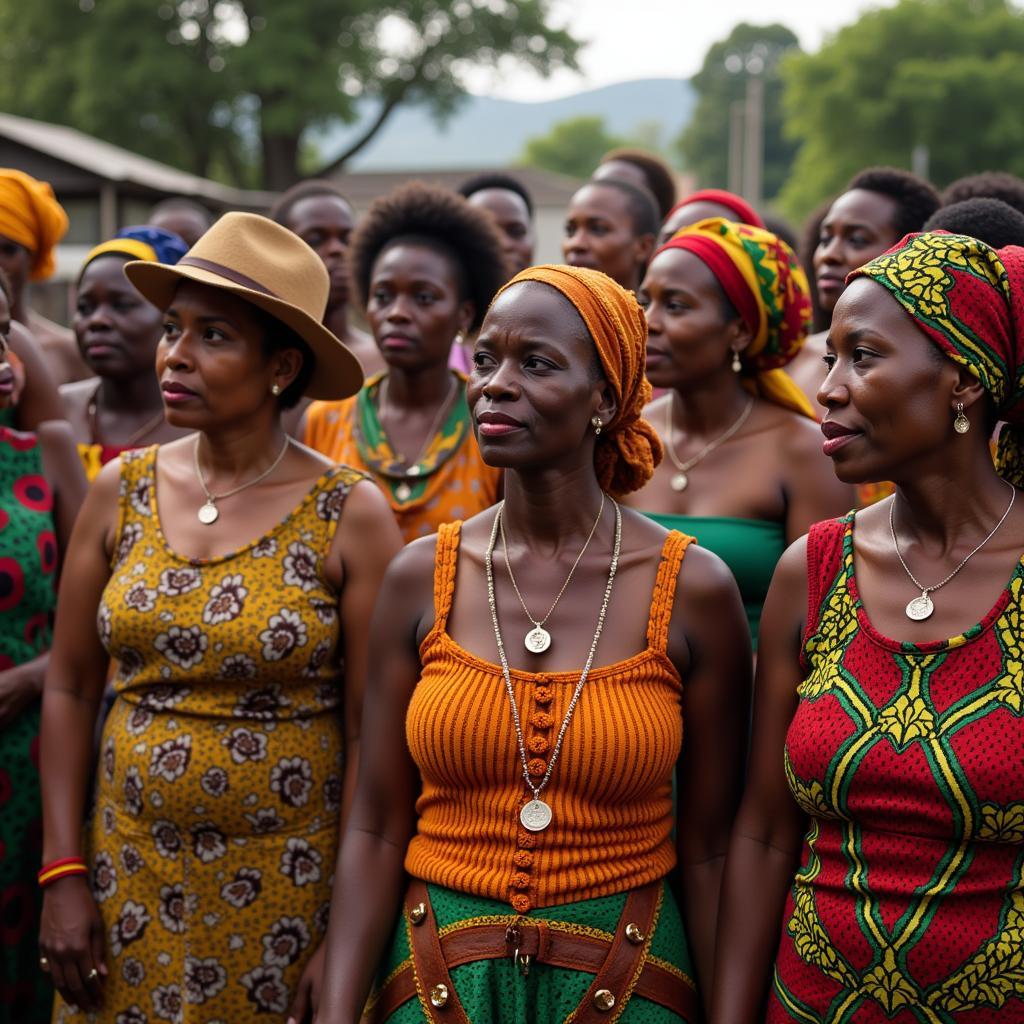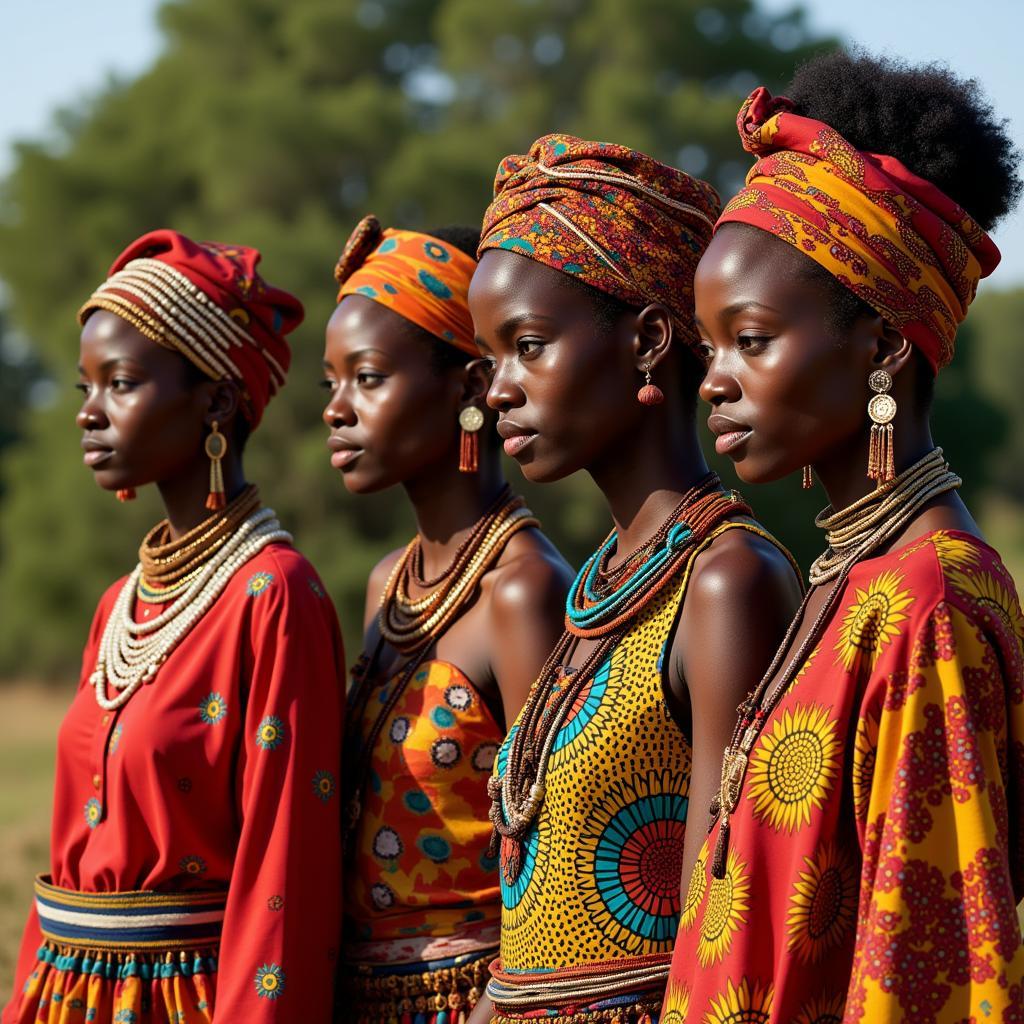Unlock Your Potential: Exploring African Fellowship Programs
African Fellowship Programs offer a unique opportunity for individuals to contribute to the continent’s development while simultaneously gaining invaluable experience. These programs cater to a diverse range of interests, from academic research and public health to environmental conservation and entrepreneurship. Whether you’re a seasoned professional or a recent graduate, an African fellowship program could be the perfect next step in your career. After completing this informative piece, you’ll be well-equipped to explore the diverse world of African fellowship programs and find the one that best suits your goals and aspirations.
What are African Fellowship Programs?
African fellowship programs are structured opportunities designed to foster professional development, academic advancement, and cross-cultural exchange. These programs often provide funding, mentorship, and networking opportunities for individuals to contribute to specific projects or research initiatives across the African continent. They can range from short-term assignments lasting a few months to multi-year commitments. Fellowship programs attract a wide range of participants, including researchers, educators, entrepreneurs, and professionals from various sectors.
What makes these programs so unique? They provide a platform for knowledge sharing and collaboration between local communities and international experts, fostering sustainable development and impactful change. Fellowships can focus on a wide variety of areas, addressing critical issues such as food security, healthcare access, and economic empowerment.
After this paragraph, we can see how vital these programs are to the continent. For those interested in economic research on the continent, the African Economic Research Consortium Careers offers an excellent starting point.
Types of African Fellowship Programs
Numerous fellowship programs cater to diverse interests and career stages. Some prominent categories include:
- Research Fellowships: These programs support scholars and researchers undertaking in-depth studies on African-related topics.
- Professional Development Fellowships: Designed for mid-career professionals, these fellowships aim to enhance leadership skills and expertise in specific fields.
- Entrepreneurial Fellowships: These programs provide aspiring entrepreneurs with the resources and mentorship to launch and grow their businesses in Africa.
- Community Engagement Fellowships: These opportunities focus on grassroots development initiatives and empower local communities.
Understanding the different types of fellowships available is crucial for choosing the right program. What program type best aligns with your skills and aspirations? Consider your long-term goals and how a fellowship can help you achieve them.
Benefits of Participating in an African Fellowship Program
Participating in an African fellowship program offers a wealth of benefits, both personally and professionally. These experiences can be transformative, providing opportunities for:
- Skill Development: Gain practical experience and enhance your expertise in your chosen field.
- Networking: Build connections with professionals and experts across Africa and globally.
- Cultural Immersion: Experience the rich cultural diversity of Africa firsthand.
- Career Advancement: A fellowship can significantly boost your career prospects.
- Personal Growth: Develop greater independence, adaptability, and cross-cultural understanding.
Beyond the professional advantages, African fellowship programs offer invaluable personal growth opportunities. Living and working in a new environment fosters adaptability, resilience, and a deeper understanding of global perspectives. What could be more rewarding than contributing to meaningful projects while immersing yourself in a vibrant culture?
How to Find and Apply for African Fellowship Programs
Finding the right African fellowship program requires careful research and planning. Here are some key steps:
- Identify Your Interests: What are your passions and career goals? Focus your search on programs that align with your interests.
- Online Resources: Utilize online databases and platforms specializing in fellowship opportunities.
- Networking: Connect with professionals in your field who may be aware of relevant programs.
- University Programs: Many universities offer fellowships for their students and alumni.
- Tailor Your Application: Carefully craft your application materials to highlight your skills and experience.
The African Institute for Mathematical PhD Admission is another valuable resource for those pursuing advanced studies in mathematics.
Remember, the application process can be competitive, so meticulous preparation is crucial. Thoroughly research the program requirements and tailor your application to demonstrate your fit and potential contribution. What unique qualities and experiences do you bring to the table? Highlight these aspects in your application.
For religious communities and those seeking spiritual guidance, exploring African churches in Sydney might offer valuable connections and support.
Conclusion: Embracing the Opportunity
African fellowship programs provide a gateway to unparalleled experiences and professional development. By actively seeking and pursuing these opportunities, you can contribute to meaningful change while advancing your own career and personal growth. So, take the leap and explore the diverse world of African fellowships – you might just find the perfect opportunity waiting for you. Embarking on an African fellowship program is an investment in yourself and in the future of Africa.
FAQ
- What is the typical duration of an African fellowship program? Fellowship durations vary, ranging from a few months to several years.
- Are African fellowship programs open to international applicants? Many programs welcome applicants from around the globe.
- What funding options are available for African fellowship programs? Funding sources include government agencies, private foundations, and universities.
- How competitive are African fellowship programs? The competitiveness varies depending on the program and field of study.
- What are the language requirements for African fellowship programs? Language requirements depend on the specific program and location.
The African Development Bank PIB provides insightful information on their public information initiatives, showcasing the bank’s commitment to transparency and communication. For those interested in space exploration and celebrating achievements, learning about the African American Ladia in space is an inspiring story.
Other Potential Questions:
- What are the visa requirements for participating in an African fellowship program?
- What are some tips for adapting to life in a new African country?
- How can I maximize the benefits of my fellowship experience?
Need help exploring African Fellowship Programs? Contact us!
Phone: +255768904061
Email: kaka.mag@gmail.com
Address: Mbarali DC Mawindi, Kangaga, Tanzania.
We have a 24/7 customer service team ready to assist you.



